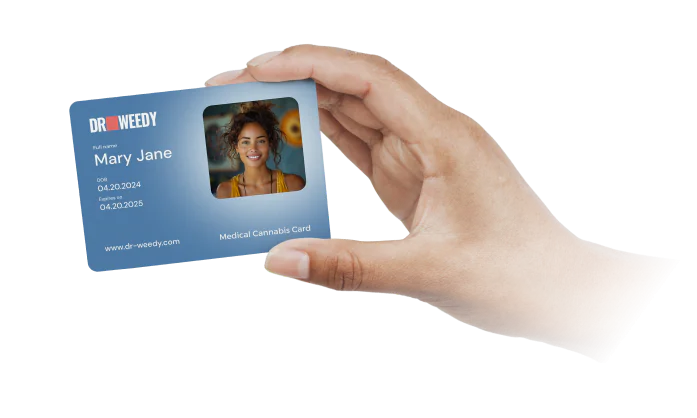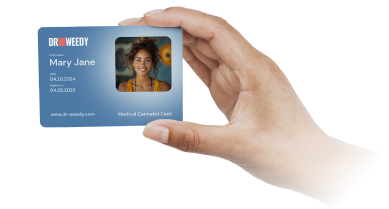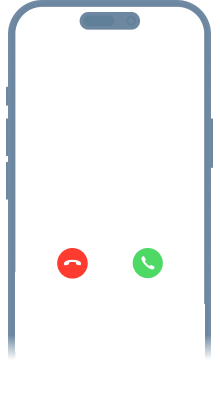Get your medical marijuana card in Michigan online



More than 150,000 patients evaluated over 8 years


Benefits of getting an MMJ card in Michigan

Increased potency

No age limit

Legal protection

How to get your medical marijuana card in Michigan
Complete a short, confidential questionnaire to begin the evaluation process. Proceed with your order by completing the secure payment process.
Undergo a medical assessment by a licensed Michigan doctor online, who will determine your eligibility and issue a certification for medical cannabis if this is required for your treatment.
After approval, register on the Michigan Department of Licensing and Regulatory Affairs Portal (LARA). Submit the application form, physician certification form, and proof of Michigan residency. Pay the $40 state application fee to finalize your registration.
MMMP processes applications within 20 business days. Approved applicants receive their registry ID card mailed by the US Postal Service within 7-10 additional business days.
Dr. Weedy cost are final
Prices for getting a medical cannabis card in Michigan
competitors
30+ state-licensed physicians at your service
Patient stories: cannabis therapy successes

Current cannabis laws in Michigan
Access crucial insights on state requirements and laws regarding cannabis

Frequently Asked Questions
Who qualifies for a medical marijuana card in MI?
Michigan residents with specific qualifying conditions, such as chronic pain, cancer, PTSD, or AIDS, can apply for a medical marijuana card. To qualify, patients need an official recommendation from a licensed Michigan physician who deems medical cannabis beneficial for symptom relief.
What documents are required for medical marijuana card?
When applying for a Michigan weed card, you need to submit a proof of MI residency and a physician certification from a registered doctor. Also, the required $40 application fee by check or money order. If you are designating a caregiver, include proof of the caregiver’s identity. Register through the Department of Licensing and Regulatory Affairs Portal (LARA).
How can I register with the Michigan Medical Marijuana Program (MMMP)?
To register with the Michigan Medical Marijuana Program, schedule an appointment with a licensed physician to check if you have the qualifying medical conditions. Then, obtain a certification from the physician. After receiving your certification, register with the Department of Licensing and Regulatory Affairs Portal (LARA) and complete the application. You’ll need to provide a proof of Michigan residency, the physician-issued certification and a $40 application fee. If you need a caregiver, you can appoint one during this process. Once the application is approved, you can receive your medical marijuana card.
Is my personal information kept confidential during the application process?
Your medical marijuana records in Michigan are private and kept confidential under the Health Insurance Portability and Accountability Act (HIPAA). There are a few exceptions, as it can be disclosed to employers and law enforcement agencies for national priority purposes.
Can I grow my own cannabis in Michigan?
You can grow marijuana in your home under Section 4 of the Michigan Medical Marihuana Act. Medical marijuana patients can grow up to 12 cannabis plants at home while caregivers can grow 12 plants per patient under their care. The plants must be grown indoors and in a secured facility, and must not be visible to the public.
Do I need a medical marijuana card to buy products at a dispensary?
If you are at least 21 years old, you can buy marijuana at a recreational dispensary. But, you need a medical card to buy cannabis products at a medical dispensary in MI.
Do I pay taxes when buying cannabis in Michigan?
When buying recreational marijuana, you pay a 6% sales tax and an excise tax of 10%. For medical marijuana patients, cannabis is cheaper and only subject to a 6% sales tax.
Can I drive after using medical marijuana in Michigan?
Michigan has strict laws regarding marijuana use and driving. While driving under the influence of cannabis is illegal and punishable by law, registered medical marijuana patients are exempt from the state’s zero-tolerance rule, which generally prohibits driving with any amount of marijuana in one’s system.
According to the Michigan Medical Marihuana Act (MMMA), lawful, registered patients can legally drive after using medical marijuana only if they are not under the influence of the substance. The Michigan Supreme Court decision in People v. Koon clarified that registered patients cannot be prosecuted solely for having marijuana in their system unless they are impaired while driving.
However, it is crucial to prioritize safety. Even as a registered patient, driving while impaired or under the influence of cannabis can lead to severe penalties, including fines, license suspension, and criminal charges. Always ensure you are fully sober before operating a vehicle.
How can I renew my medical marijuana card in Michigan?
To renew your medical marijuana card, even if it was initially issued by another doctor, follow these steps:
- Check Expiration: Make sure your current card is close to expiration.
- Consult a Certified Doctor: Book a renewal consultation with a licensed medical marijuana physician with Dr. Weedy in Michigan to confirm your eligibility.
- Complete Renewal Application: Submit your renewal application online, including required documents and the renewal fee.
- Receive Confirmation: Once approved, your renewed card will be issued.
Useful addresses in Michigan for patients
Department of Licensing and Regulatory Affairs
Cannabis Regulatory Agency
MI Medical Marijuana Program
P.O. Box 30083
Lansing, MI 48909
Phone Number: 517-284-8599
Email: CRA-MMMPINFO@michigan.gov
Department of Licensing and Regulatory Affairs
Bureau of Fire Services
Cannabis Regulation
611 W Ottawa St, 4th Floor
Lansing, MI 48933
Phone number: 517-241-8847
Fax: 517-335-4061
Email: LARA-BFS-Marihuana@Michigan.gov
Department of Licensing and Regulatory Affairs
Cannabis Regulatory Agency
Enforcement Division
P.O. Box 30205
Lansing, MI 48909
Phone Number: 517-284-8599
Field Operations Email:
CRA-Enforcement@Michigan.gov
Operations Support Email:
CRA-Compliance@Michigan.gov
Scientific Email: CRA-SCF@Michigan.gov
Department of Licensing and Regulatory Affairs
Cannabis Regulatory Agency
PO Box 30776
Lansing, MI 48909
Phone Number: 517-284-0815
Email: CRA-Hemp@michigan.gov
Department of Licensing and Regulatory Affairs
Cannabis Regulatory Agency
Licensing Division
P.O. Box 30205
Lansing, MI 48909
Phone Number: 517-284-8599
Email:
CRA-Adult-Use-Marijuana@michigan.gov
CRA-MedicalMarijuana@michigan.gov
Department of Licensing and Regulatory Affairs
Cannabis Regulatory Agency
Communications and Grants Division
P.O. Box 30205
Lansing, MI 48909
Phone Number: 517-284-8599
Email: CRA-Socialequity@michigan.gov


































